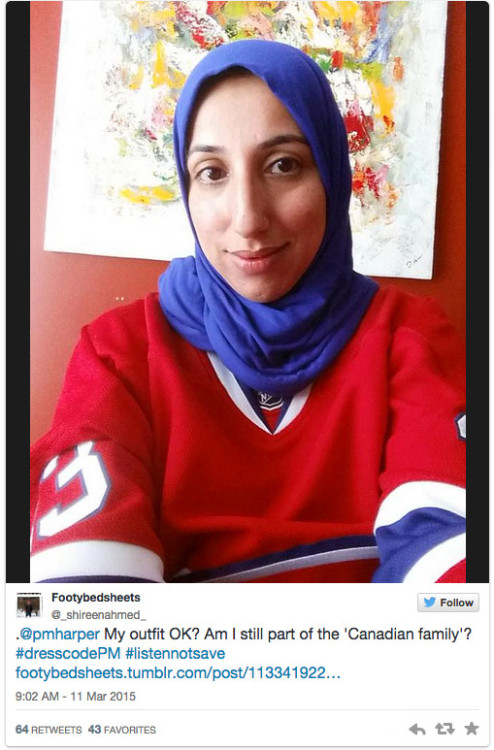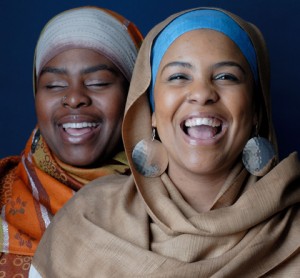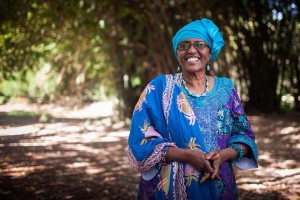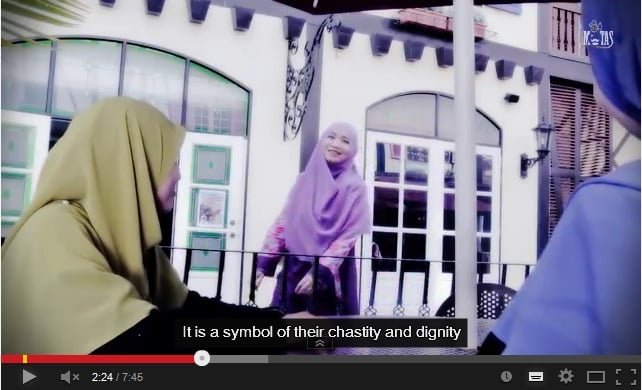Last month Canadian social media went wild with covering puns and jabs at the extraordinarily Islamophobic leader of the government, Prime Minister Harper. The Harper Government are challenging a ruling by the Supreme Court of Canada that allows Ms. Zunera Ishaq to wear her niqab at her Canadian Citizenship ceremony. A ruling that Harper insists he will challenge. According to the Prime Minister, Ms.Ishaq’s choice to wear niqab, as a practice of her faith, is unacceptable and baffling while joining the Canadian family.
“It’s very easy to understand,” said Harper in the House of Commons. “Why would Canadians, contrary to our own values, embrace a practice at that time that is not transparent, that is not open and, frankly, is rooted in a culture that is anti-women?”
For just one moment, let’s ignore the tragic irony (read: hypocrisy) that is Prime Minister Harper dictating what is allowable for women to wear. In his usual arrogant and misogynist tone, he declares that a woman in Canada, who chooses wearing niqab, should not be supported by fellow Canadians. Prime Minister Harper and his cronies, namely Defense Minister Jason Kenney and Citizenship Minister Chris Alexander, often make ridiculous and misinformed statements about Muslim women’s clothing. Let’s for another moment, imagine that Canadian women are perfectly fine with choosing their own clothes based on the Canadian Charter of Rights and Freedoms and well, basic fashion savvy. Immediately, Canadians took to their laptops and phone and took up a rallying cry of unapologetic wit and sarcasm with the hashtag #DressCodePM As important and hilarious as the tweets and posts are, a huge piece of this campaign is the #ListenNotSave hashtag that is reminding us to call out disingenuous rhetoric by the Harper Government under the guise of caring about the marginalization of women. The same Government that has failed to speak up and investigate the cases of over 1000 missing and murdered Indigenous women in Canada. #ListenNotSave was originally created by women of colour to speak to the injustices of Bill S7, the Barbaric Cultural Practices Act. #ListenNotSave was also a call to amplify the voices of the women who are being spoken *of* and not *to*. In the same way that at MMW we have extensively covered the topic of ‘saving’ Muslim women by ineffective policies and by saviourism. Tasnim, Eren and I read and reviewed Prof. Lila Abu-Lughod’s brilliant work in “Do Muslim Women Need Saving?” This book is a must-read for politicians and public representatives. Particularly those who engage in meaningless discussions about Muslim women’s choice of dress. (more…)















